“Are you thinking if you should accept a tempting job offer?” Maybe you should stop a minute before you start signing the dotted lines.
We often jump into accepting a new job with the hope we’re good enough for the position. Very rarely do we actually reciprocate the scrutiny, evaluating whether a potential employer is an appropriate fit for us.
Of course, you want to ensure you fit the company and the kind of employee for whom they’re looking. However, the company should also suit you, your lifestyle, and your fiscal needs.
KEY TAKEAWAY
- Reciprocal Evaluation: Don’t just accept a job offer blindly; evaluate if the company aligns with your needs and values.
- Research Employer: Gather information about the employer’s reputation, culture, and management style to make an informed decision.
- Consider Compensation: Look beyond salary to assess the entire compensation package, including benefits and perks.
- Understand Job Role: Ensure clarity on job responsibilities and evaluate if they match your skills and career goals.
- Work-Life Balance: Prioritize a job that offers a healthy work-life balance and supports your overall well-being.
How To Properly Evaluate a Job Offer for Your Next Job?
Getting a job offer after a long job search can be quite exciting. But accepting a job offer without proper evaluation of your job offer usually results in regrets, time lost, opportunity lost and even financial lost.
You may want to look into a few important criteria when evaluating a job offer, these will include:
- Researching the company culture and management style.
- Considering the compensation package.
- Analyzing additional benefits/perks, living expenses.
With this, here are some tips to help you evaluate and find the right job that suits you.
1. Research the Reputation of the Prospective Employer
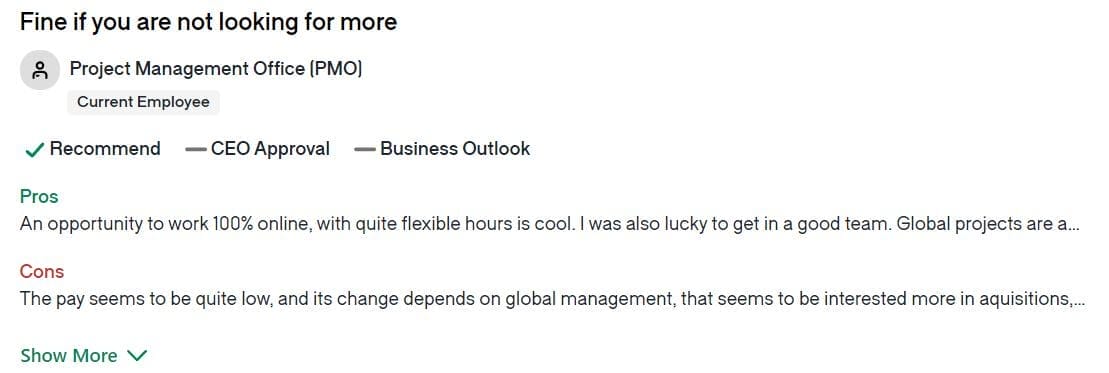
Before many any career decisions, you need to gather as much information as you can about your potential employer.
Not only will this give you a competitive edge, but it will also let you know what you’re getting yourself into. Look everywhere and anywhere you can find business listings, information, and legal filings.
This means knowing its history, who owns it, the current CEOs, and how many total employees they have. But, it also includes knowing who their major clients are, the industry they’re in, and how much money they profit annually. The following suggestions should help to get you started:
- Website: The best place to start is going to the potential employer’s website. Any business worth it’s salt will have some kind of online presence in the form of the main website.
- Directories: Many business directories will provide further information that the company may not list on its website. You can do an online search for “business directory” and refine your search by including the type of industry they’re in or the name of the company.
- Annual Reports and/or SEC Filing: Annual reports and/or SEC filing will tell you a lot about your potential employer. This is available through local and federal government websites and establishments. These will provide a lot of information you may not find in a directory or their main website.
- Press Releases: These are news bits submitted to local and online media outlets, which go out to consumers. Sometimes they promote new products and other times their public relations damage control. Once again, use your internet search tool to find the business name along with the words, “press release.”
- Newspapers: Visit the websites of all your local and/or national papers or go to your nearest library and try to find all the articles you can that talk about your potential employer. Try to get a picture of how the media paints them versus how the company actually is.
- Journals; Magazines: If you know the industry of the company you’re looking at, find magazines and journals with that focus. See what writers have to say about the company, what they do, and what their place is in the industry. So, this will involve looking up periodicals for business, industry, and/or professional.
- Social Media: Another excellent source is social media. Not only will you be able to see how the public reacts to what they post, but you can also see upcoming events, plans, and ideas. It will allow you to review how they treat people in general and what kind of vibe they put out into the ether as well.
2. Compensation Package
Of course, the compensation you’ll receive should be the main point in your consideration. Think about your regular expenses and weigh those against what the offer dictates you’ll receive. This will include your hourly pay or weekly salary, any bonuses along with stock options and retirement funds.
Therefore, during your research, you should also find out what the average salary is for someone in your field and line of work. Is the company realistic in what they offer? Will you be able to live off of this amount of money?
If you find the compensation to be far too low, you may be able to negotiate a higher price before taking the job. But, this should balance with your skills, talents, experience, and how desirable all that is for the industry at this moment in time.
3. Benefits and Perks
Aside from compensation, what other benefits and perks do the company offer? Things like stock options, restaurant/retail discounts, mileage points for airlines, and other such privileges should also factor into your evaluation. In some cases, this aspect may encompass a larger portion of the compensation package.
It’s especially poignant to review these if your compensation is going to be lower than the national average or what you think you should get paid. Ask yourself the questions below:
- What is the allotment for sick days and vacations?
- What kind of health plan or insurance will you receive? How much are the premiums and how soon will you be eligible?
- Are stocks part of a bonus or do you participate in the board of directors? How soon can you participate after hiring?
- Will the potential employer pay tuition fees if you enroll in relevant courses, workshops, and seminars?
- Does the company offer any incentives based on your performance or other personal achievements?
- Is there any pension involved with becoming an employee of this company?
- Do you get to share in any of the company’s profits? Do they have a profit-sharing program?
- Will the company give you a computer, or cell phone or give you the use of a car?
- Does the potential employer offer things like daycare, travel bonuses, gym memberships and etc?
4. Job Title and Description
Another crucial factor in evaluating a job offer is to understand the job title and the duties expected of you. Not only will this help you decisively determine if the job suits you but it will also let you mentally prepare yourself for the tasks ahead. You want to ensure it’s within your capabilities and that you satisfy the employer’s requirements.
This means making sure you understand the hours expected to work every week, including overtime and tardiness policies. You also want to ensure the job description reflects the title of it in a way that is thorough and realistic while also making sense.
If at any point you don’t understand something or a question comes up not explicitly in the description, call the company. Depending on how large it is, you may have to reach out to the Human Resources department. Whatever clarification you need, get it before accepting the offer.
5. Management Style of the Future Employer
Interpersonal relationships are going to be everything when you finally begin working at this possible employer. Therefore, you want to understand how they manage their employees. Look up employee commentary on places like GlassDoor and First Hand. Consider these questions:
- Is the management style differences between varying departments or is it consistent throughout?
- What is the reputation of the management team?
- Do they micromanage, helicopter, or have a loose layout for management?
- Do they run a tight ship?
- Is there a large turnover of management staff?
- Does the company engage in office politics, favoritism, or have an elite clique?
6. Location
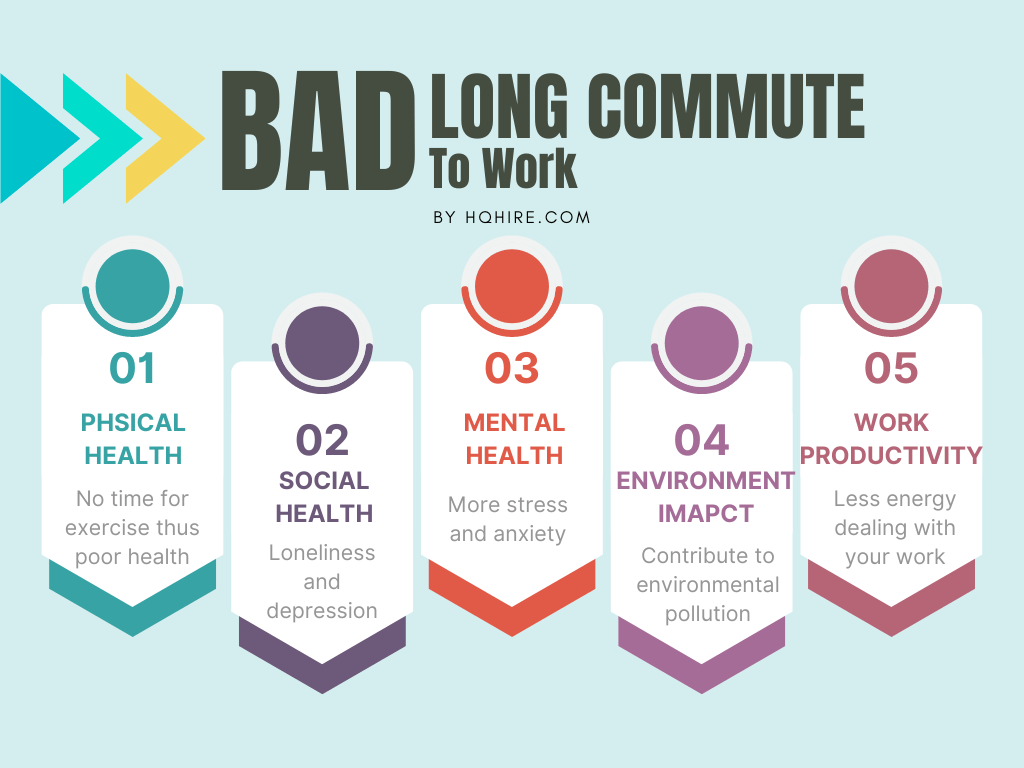
Where your job is versus where you live can sometimes be two different creatures. This is especially pertinent in regard to relocation. While it may be tempting to jump into a job offer as soon as possible, you cannot do this without considering where you’re going to live and its cost of living.
With inflation blowing up to all-time highs and living expenses flying through the roof, this is a very important consideration. If what the job offers will not cover where you have to live while improving your quality of life, you may want to refuse the offer and look elsewhere.
7. Work-Life Balance
While you do have some time you’re willing to give over to the company in exchange for employment, you also have a life. Consider the hours you’re going to work every day and what your responsibilities are. You should also include leisure time and how much sleep you require.
What’s more, ruminate over what time of day you are at your best and most efficient. For some people, the morning is best but other people don’t become productive until the afternoon. Ergo, afternoon people shouldn’t take a job that requires them to be there at 7 am. Likewise, early birds shouldn’t take a job that begins at 9 pm.
8. Career Path
Your last, but not least, consideration to evaluate is the potential it has for your future. Upward mobility in the company, building a specific skill set for later on, and gaining valuable training will all fall under this umbrella.
However, some people may be fine with having one job and doing that for many years without any plans for advancement.
Therefore, the main takeaway here revolves around your plans for the future and where you’d like to go by working at this company, and your career goals.
Creating A Job Offer Comparison Chart
A job offer comparison chart is a worksheet that can help you compare your current job against potential job offers with the criteria that are important when evaluating if you want to accept, reject or negotiate a job.
To create your own comparison chart, you’ll just need Microsoft Excel, Google Sheets, or just a piece of paper:
- In the first row, list down your job offers across the worksheet.
- In the first column list down the criteria for evaluating an offer.
- In the next column add the information about your current job if you are currently employed, otherwise, you can skip this column.
- In the next column(s) fill in the information, you’ve found for the job offer(s) honestly.
- Lastly, calculate your score for each of the job(s) and you’ve created your job offer comparison chart.
Job Evaluation Comparison Chart Template
To make your life easier, we’ve created a job offer comparison template to get you started.
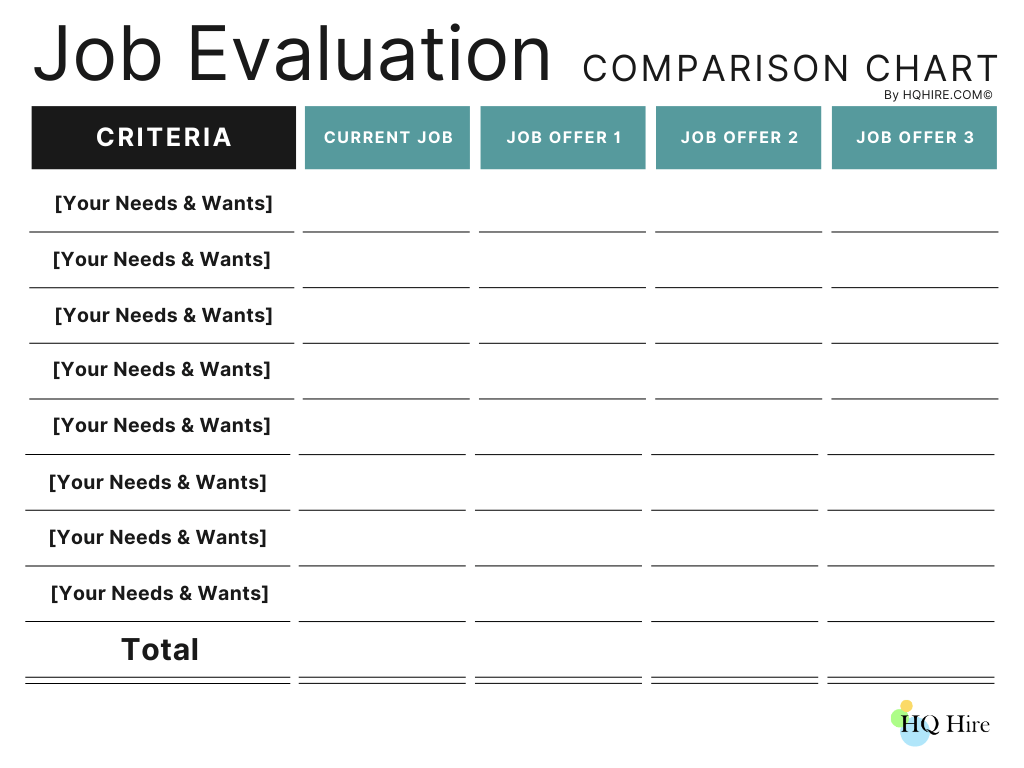
How to Use the Job Evaluation Comparison Chart?
Rank each of the criteria using a simple scale of one to five, where one is a poor match, and five is a perfect match.
Be honest and rank how well each job offer is compared with your current job.
By filling up this worksheet, you’ll have one of the two outcomes
- The comparison chart shows a job with a higher overall score and a clear winner on which job seems to be the best.
- The comparison chart shows a tie or the overall score seems very close between the different jobs, if that’s the case, simply look at the 3 most important criteria and decided which is the winner.
To help you when you are comparing the different job offers, we’ve created a job offer comparison chart with the most important evaluation criteria for a job below.
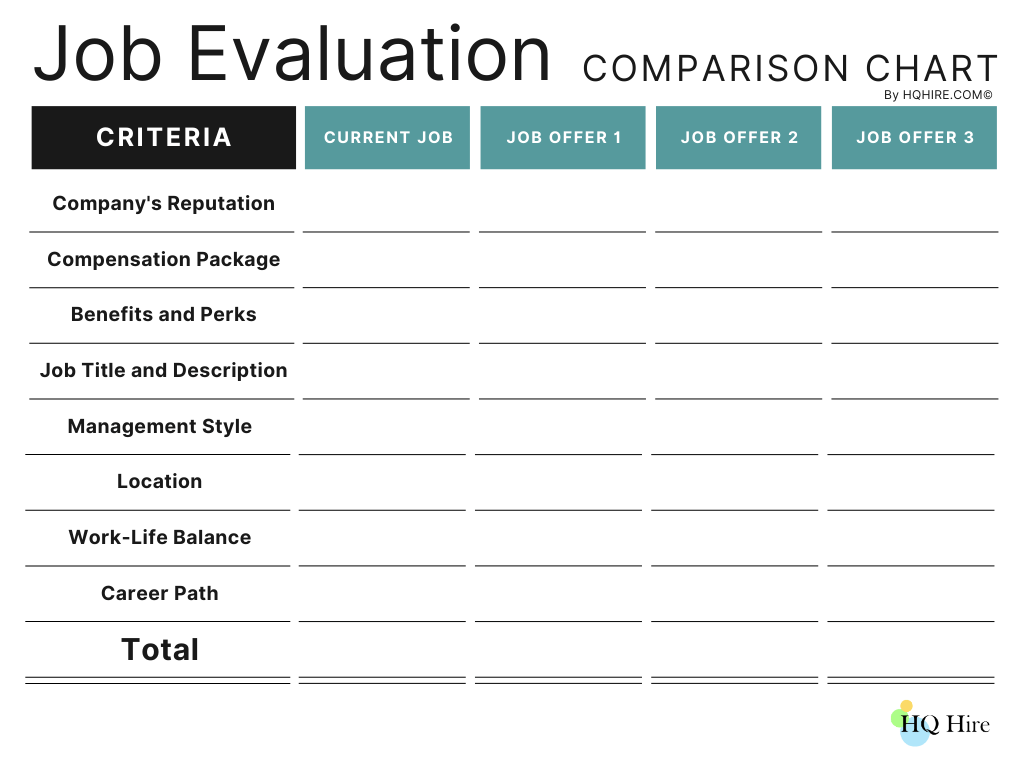
The evaluation criteria serve as a guide to assessing a potential job, each can have some form of impact on your personal and professional life.
With the comparison chart, you can print out and use it to compare your job offers and find the right job that will most likely let you enjoy the most.
Why Do You Need to Evaluate a Job Offer?
Evaluating every job offer letter you receive is important if you want to progress in your career, be more satisfied in your job, and have a better salary and benefits package than your current job or job with similar job titles.
For job seekers, evaluating a job offer allows you to make an informed decision when responding to your job offer, and take the most appropriate next action in your job search,
- Accept the job offer
- Decline the job offer
- Negotiate the job offer
Because having the right job can greatly impact the different aspects of your life such as happiness, personal health, interpersonal relationships, job satisfaction, career prospects, and the freedom to work from home removing the need to commute to work.
Proper valuation of your job offer also lets you compare offers so that you can decide which one is the best fit for your career goals.
When you get a job offer, just take the time to evaluate each offer carefully, as there is often more job opportunity than you think.
When Will You Want to Negotiate a Job Offer?
If the terms of the offer do not meet your expectation, the best time to negotiate a job offer is after you’ve proven to the hiring manager that you are the best candidate for the job after they have issued a formal job offer letter.
Start your negotiation right after you’ve received the offer letter, and prior to negotiation make sure you have the required information prepared,
- Understand all aspects of the responsibilities of the job, i.e. skills and experience required for the job.
- Understand the industry and the information of the current job market, i.e. supply of talents, base salary, and benefits.
- Understand the mode of work, i.e. remote, hybrid, or on-site.
- Understand the work schedule, i.e. 5-day work week or 4-day work week, types of shift work such as 12 hrs shift, night shift, or weekend shift.
- Review the things you want to negotiate.
Come up with a negotiation strategy, and if you have multiple job offers, you can let them know if it makes sense.
Negotiation is about getting to a common consensus and making an agreement on something, it is never about winning or losing.
When Will You Want to Turn Down a Job Offer?
When rejecting a job offer, the best time to inform the hiring manager or recruiter is as soon as you are sure about your decision to decline an offer. This gives them sufficient time to make an offer to another candidate reducing the impact on their business operation.
As a job seeker, there are many reasons why you may want to turn down a job offer, and the few common reasons are as follow:
- The starting salary does not meet your salary expectation.
- The benefits are lacking and are not as good as your current job
- The job roles and responsibility is vague and unclear.
- The offer process doesn’t give you a good vibe about how the company is managed.
- Many companies offered a higher salary.
Turning down a job offer is totally acceptable, you just need to be professional when declining a job offer so that you don’t burn any bridges.
When Will You Want to Accept a Job Offer?
Acceptance of a job offer should be evaluated according to your own individual needs and career goals. After you’ve carefully evaluated a new job offer using the criteria listed here, it is advisable to get back to the hiring manager as soon as possible to let them know about your decision.
As a job seeker, these are some of the main reasons why you may want to accept a job offer:
- The company pays a salary that is higher than your current job.
- The company has an amazing organizational culture which you will like to work in.
- The benefits package offered by the company meets your needs.
- The long-term prospect of the job is aligned with your career goals.
- The company provides professional opportunities for development and growth
What Should You Do If You Have a Job Offer Right Now?
Here, we’ve shown you tips for evaluating a job offer. Getting offered a job as a job seeker can be an exciting and stressful process.
- Take your time and consider all aspects such as salary, benefits, location, and job culture when determining whether a job is right for you.
- Objectively evaluate all of the information before making your decision to accept, reject or negotiate the offer.
- Use the job offer comparison chart to help you in making the decision, so it gives you a clear understanding of what are the choices given to you.
Check out my other articles that give you even more details when evaluating a job offer so you can make an more informed decision for your career:
- Evaluating a freelance job offer for professional freelancer
- Evaluating a remote work job offer for remote workers
- Evaluating a startup job offer for highly passionate individuals
But when you’ve decided to accept the offer, accept it with enthusiasm and put your 100% into performing the job!
Get your 100% Free online resume and get noticed by potential employers. Start out of the crowded space of millions of remote job seekers and find the remote job that you will enjoy and love.
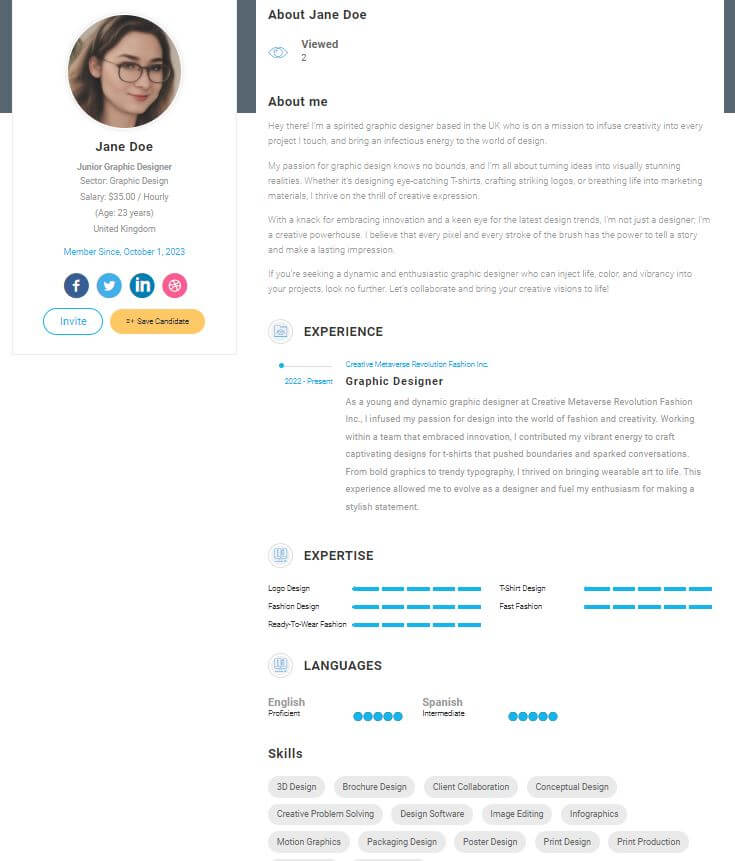

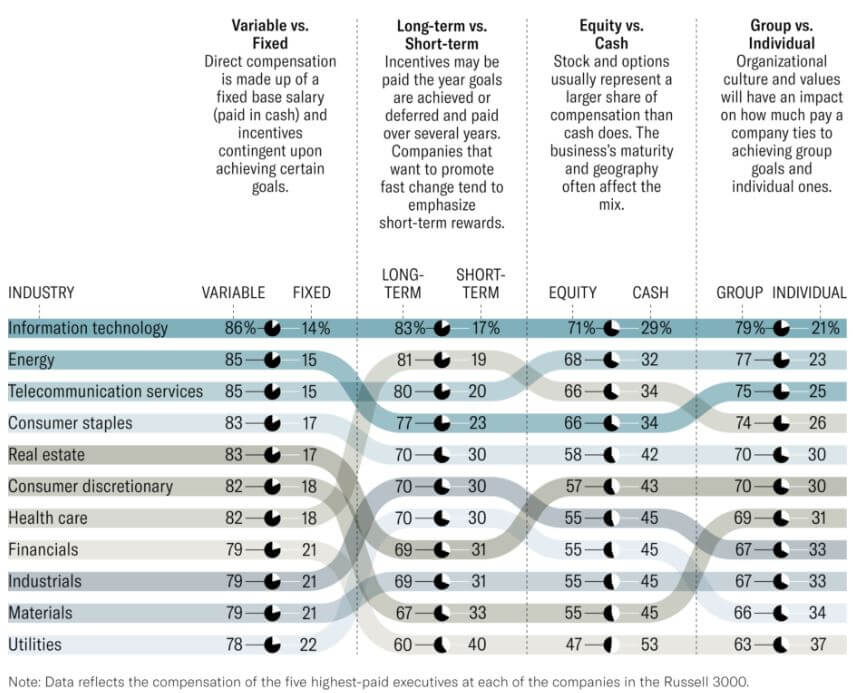

![Jobs of The Future [2025 Job Future Outlook] 8 Jobs of The Future [2025 Job Future Outlook]](https://hqhire.com/wp-content/uploads/2020/12/Jobs-Of-The-Future-Report-By-World-Economic-Forum-Key-Takeaways-768x402.jpg)



